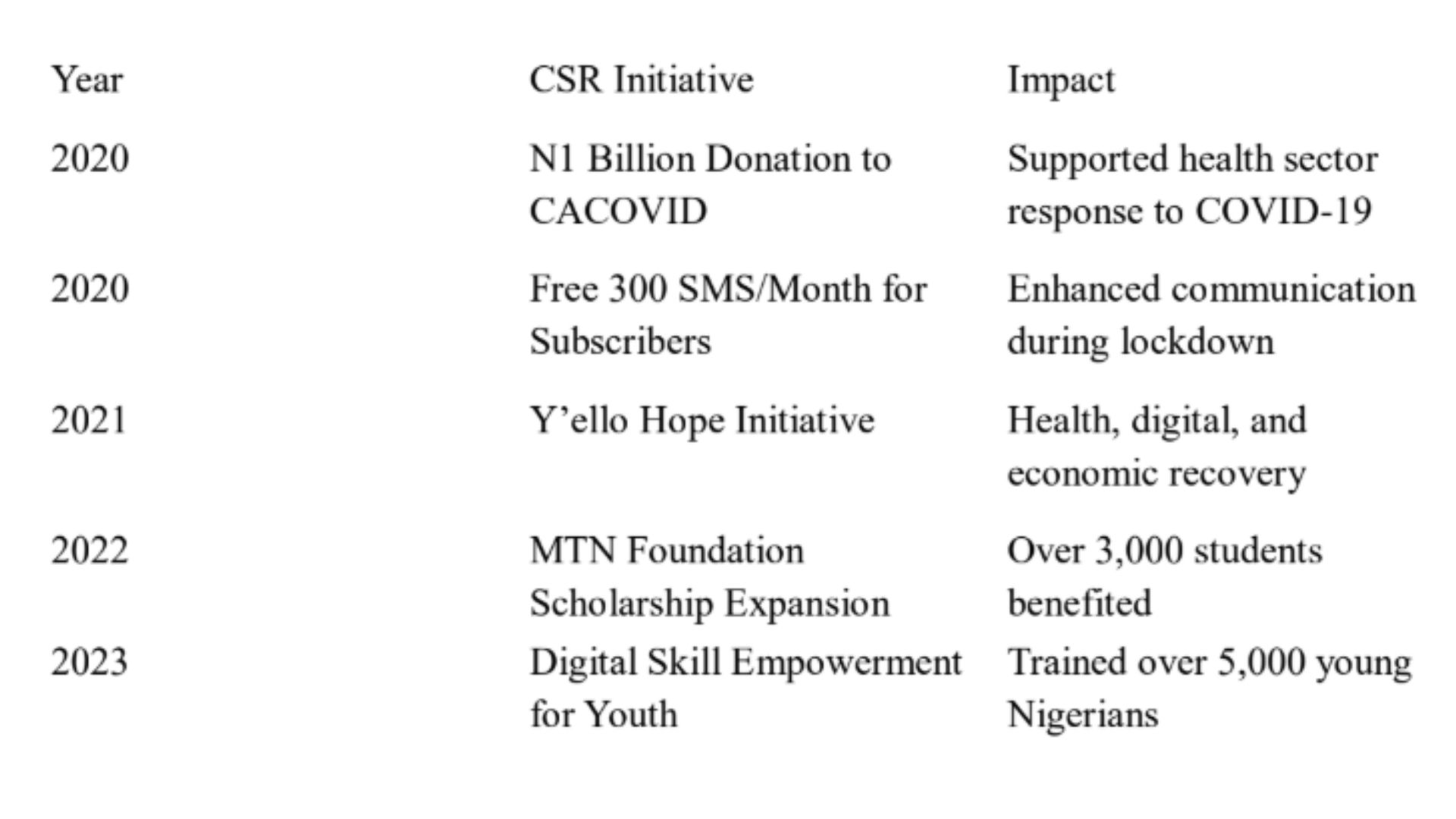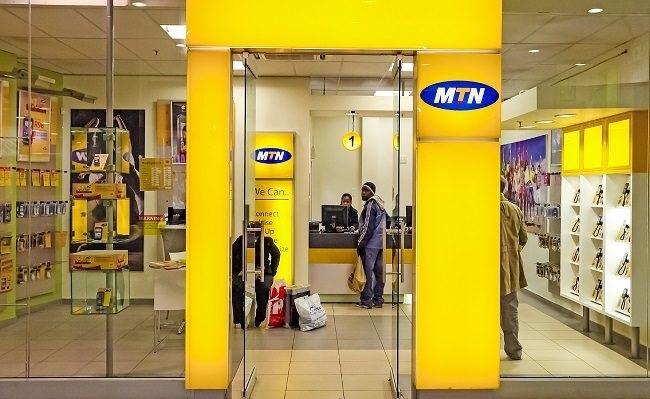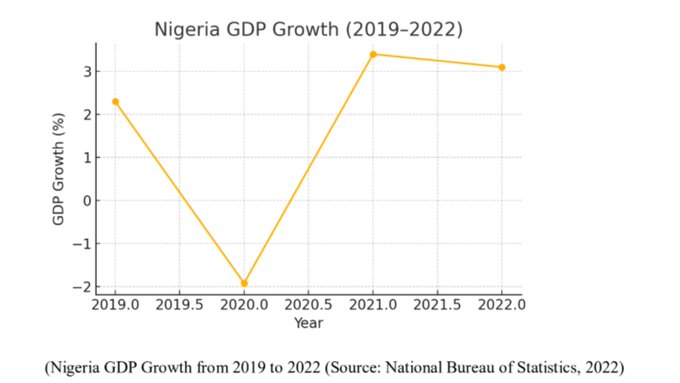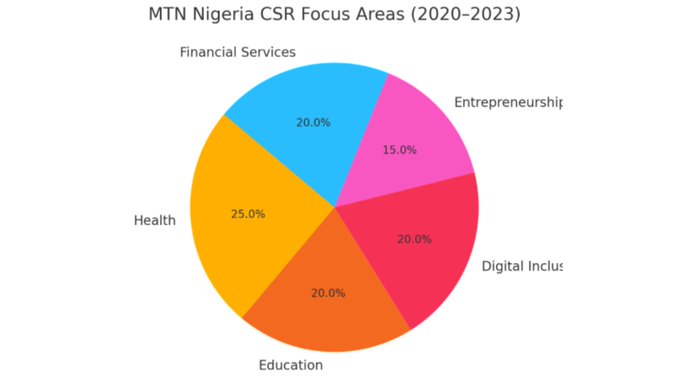Author: Afeez Olawoyin
The COVID-19 pandemic created unprecedented disruptions across global economies, especially in developing countries such as Nigeria.
As a result, businesses were not only expected to survive but also contribute to social and economic recovery.
Corporate Social Responsibility (CSR), once regarded as a peripheral concern, has now taken center stage.
In this context, multinationals like MTN Nigeria have adopted CSR initiatives not just as a moral obligation, but as an essential part
of post-pandemic economic stimulus.
Corporate Social Responsibility (CSR) in Nigeria has grown increasingly significant in the context of socio-economic challenges such as poverty, infrastructure deficits, and unemployment.
In the post-COVID era, the role of CSR expanded beyond charity to include direct contributions to national recovery.
MTN Nigeria, as a multinational corporation, has used CSR as a mechanism to enhance its corporate reputation while simultaneously supporting the Nigerian government’s recovery agenda.
The study aims to examine the role of Corporate Social Responsibility (CSR) as a post-COVID-19 economic stimulus in Nigeria, using MTN Nigeria as a case study.
It seeks to evaluate how MTN’s CSR initiatives contributed to national recovery efforts, particularly in areas such as healthcare, digital inclusion, education, and small business empowerment.
Background to Corporate Social Responsibility in Nigeria
Corporate Social Responsibility (CSR) has become central to modern corporate strategy, ensuring business success aligns with positive social outcomes (Carroll, 1991).
In Nigeria, MTN Nigeria has emerged as a leader in CSR, deploying significant resources across education, health, environmental sustainability, digital inclusion, and community development.
Corporate Social Responsibility (CSR) in Nigeria has evolved from philanthropy to a strategic business approach encompassing economic, social, and environmental concerns.
Multinationals are increasingly recognizing their role in fostering national development. In Nigeria, CSR practices have been instrumental in education, healthcare, youth empowerment, and digital inclusion.
Companies like MTN Nigeria have used CSR to build brand loyalty, reduce regulatory friction, and foster sustainable growth.
COVID-19 and its Economic Impact in Nigeria
The Nigerian economy contracted by 1.92% in 2020 due to the COVID-19 pandemic (NBS, 2021).
Sectors such as manufacturing, telecommunications, and services faced disruptions. Unemployment rose to 33.3%, and small businesses were especially vulnerable.
Government stimulus packages were limited due to falling oil revenues, making private sector intervention critical for recovery.
MTN Nigeria’s Post-COVID CSR Strategies
MTN Nigeria, a leading telecommunications provider, implemented strategic CSR initiatives in response to the COVID-19 pandemic. In 2020, MTN donated N1 billion to the Coalition Against COVID-19 (CACOVID) and provided over 300,000 lines with free SMS bundles to support communication during lockdowns (MTN Nigeria, 2020).
The company also launched the Y’ello Hope initiative, aimed at protecting lives, supporting health agencies, and enabling economic recovery.
Through its Y’ello Digital Financial Services, MTN provided mobile money services that enabled financial inclusion for underserved communities during movement restrictions.
MTN’s intervention in education included providing free data for e-learning platforms in partnership with the Ministry of Education. Beyond initial contributions to CACOVID and free SMS services, MTN
Nigeria expanded its interventions in subsequent years.
In 2021, MTN Nigeria, through the MTN Foundation, launched the “MTN Y’ello Doctor” project—a mobile health initiative aimed at
delivering primary healthcare services to remote communities.
By the end of 2023, the program had reached over 200,000 beneficiaries across 16 states (MTN Foundation, 2023).
Selected MTN Nigeria CSR Initiatives (2020–2023)

CSR has emerged as a practical tool for economic stimulation in Nigeria. By investing in health, education, and entrepreneurship, companies like MTN support livelihoods and build social capital.
According to the United Nations Development Programme (UNDP, 2021), CSR can catalyze inclusive recovery by creating jobs, supporting local suppliers, and enabling digital transformation.
In post-COVID Nigeria, CSR activities directly contribute to economic resilience. For instance,
MTN’s digital training programs increased employability, while scholarships improved access to education. These interventions not only support immediate needs but also foster long-term growth
reduce dependency on government spending.
CSR Impact Areas by MTN Nigeria
Distribution of MTN Nigeria CSR Focus Areas (2020–2023)
Conclusion
MTN Nigeria’s CSR strategies during and after the COVID-19 pandemic underscore the evolving role of private sector initiatives in national development.
Beyond philanthropy, CSR has become a robust mechanism for driving economic recovery, improving livelihoods, and supporting digital
and educational inclusion.
As Nigeria continues its path to recovery, sustained and strategic CSR
by multinationals will be vital to achieving inclusive and resilient growth.





